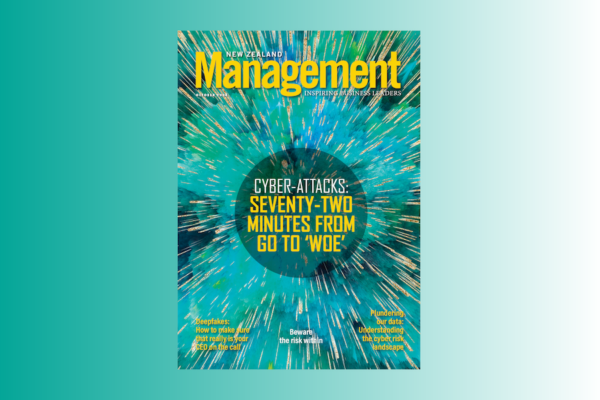Why are we here? Who would miss us if we weren’t? What if people do not mind change – but mind being changed?
Goran Carstedt is given to asking some fairly crunchy questions. It is, he says, what organisational leadership is all about – not so much managing people as leading them with ideas that inspire and that are in tune with the times we live in.
“To be able to take group of people from here to there, you need to invite them to something that is full of meaning, purpose, learning – you have to invite them to something that is really worth their fullest commitment.”
We are, he says, too caught up in the machine metaphor.
“Big institutions tend to make us think we are in control of something and we do things by telling, implementing, imposing – but there is another process which is about co-creating.”
Carstedt knows what he’s talking about. As leader of such iconic companies as Volvo, Ikea and more recently the Society for Organisational Learning, he brings very practical, people-oriented perspective to his work as global consultant on organisational development.
In Auckland last month as presenter at the World Thought Leaders Forum, he spoke about the social revolution we are living through – from life largely organised for us, to world in which we are all forced to be in charge of our own destiny. It’s world in which the old organisational paradigms no longer work.
“I think somehow we have been so into building our machines, our cars, our things – even our schools and hospitals have become something you drive. I am invited sometimes to say how do we drive change, how do we drive innovation. Okay, we drive cars – but have you tried to drive your teenagers; have you tried to make plan to change your wife or your husband?
“Of course it doesn’t work but somehow, when we get into institutions that’s where we seem to end up.
“Nobody says it but we tend to have in the back of our heads that we are running machine – department by department, responsibility by responsibility. And we are sitting up there in the hierarchy pushing buttons, pulling levers, taking decisions and believing it is going to happen down there. But the world has become too complex for that.”
One of the key questions he brings to any organisation is “who would miss us if we were not there” because it helps them focus on their real purpose – for customers, workers, shareholders and society in general.
And it’s not just about making money.
“I have no problem with the American one liner that says ‘no margin, no mission’ but I can’t see why people can’t see the opposite as being even more important – how can we deliver result or margin if we don’t have meaningful mission. Why separate these two or put them against each other. To me it is like seeing Swedish cross-country skier moving forward one leg, then the other – margin, mission, short-term, long-term. It’s the same body.”
One of the hurdles to development is fear, which is why leaders need to somehow create space in which there is no fear of making mistakes. Because both experience and research tell us that where there are no mistakes, there is no development, no innovation, says Carstedt.
There is quote from the Ikea factory that he uses: “Only while sleeping we make no mistakes. Fear of making mistakes is the root of bureaucracy and the enemy of all evolution.”
As human beings, he adds, we are too locked into way of thinking that is about knowing rather than about learning.
“Knowing is rewarding. You come to school and say ‘I know’ and you are rewarded. You come to work, become manager and you’re supposed to know. That’s why they pay you more. So you start to tell and you stop listening. We are all part of that.”
Learning means acknowledging when we’re wrong and being open to the new realities that are emerging – like climate change, says Carstedt.
“One of the biggest challenges we face today is that we are in conflict with our ecosystem. We have to come to this understanding that we can no longer go out there and continue to conquer nature but must somehow live in harmony with it: to shift from our linear take, make and waste way of thinking into circular way of thinking, like nature itself.
“That in itself is dramatic challenge in terms of leadership – not just for politicians or corporate leaders but for us as parents or as project leaders. Maybe we should not spend so much time developing talking refrigerators – we can live without them. But to find things that prove we understand our circular relationship with nature. I think that would give meaning and can bring lot of new business, new products, new processes, new business models, new ways of collaboration.
“Isn’t that exciting and meaningful?”

More than one role at a time
If you are new to the world of double hatting (doing two full time roles at the same time) Kate Kearins offers tips she hopes might help you and your










